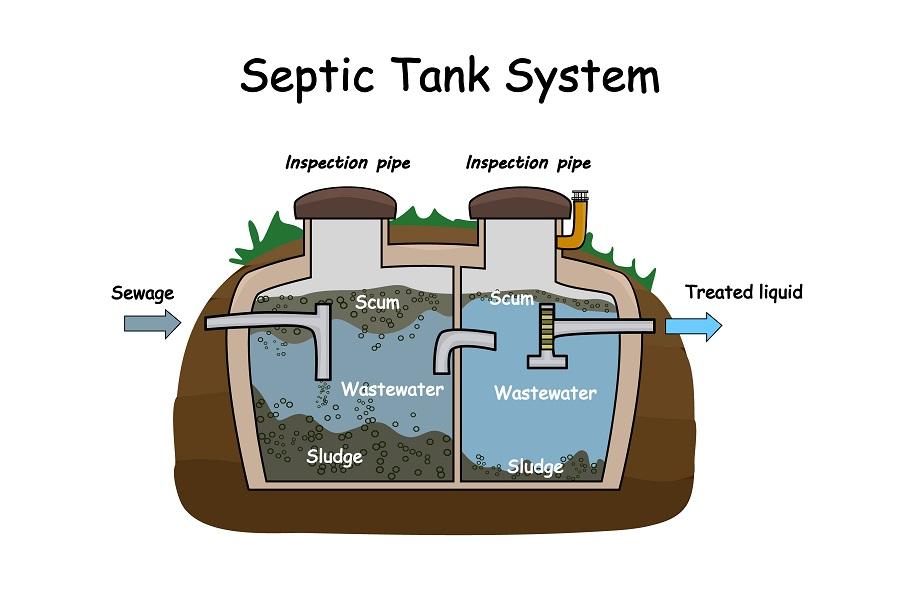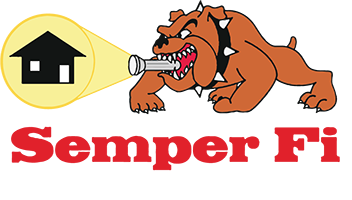If your septic tank failed, or you know someone whose did, you are not alone. As a homeowner, you are responsible for maintaining your septic system. Proper septic system maintenance will help keep your system from failing and will help maintain your investment in your home.
Failing septic systems can contaminate the ground water that you and your neighbors drink and can pollute nearby rivers, lakes and coastal waters.

A typical septic system has four main components: a pipe from the home, a septic tank, a drainfield, and the soil. Microbes in the soil digest and remove most contaminants from wastewater before it eventually reaches groundwater.
The septic tank is a buried, watertight container typically made of concrete, fiberglass, or polyethylene. It holds the wastewater long enough to allow solids to settle out (forming sludge), and oil and grease to float to the surface (as scum). It also allows partial decomposition of the solid materials. Compartments and a T-shaped outlet in the septic tank prevent the sludge and scum from leaving the tank and traveling into the drainfield area. Screens are also recommended to keep solids from entering the drainfield. The wastewater exits the septic tank and is discharged into the drainfield for further treatment by the soil. Microorganisms in the soil provide final treatment by removing harmful bacteria, viruses and nutrients.
Ten simple steps you can take to keep your septic system working properly:
- Locate your septic tank and drainfield. Keep a drawing of these locations in your records.
- Have your septic system inspected at least every three years. Hire an InterNACHI inspector trained in septic inspections.
- Pump your septic tank as needed (generally, every three to five years).
- Don’t dispose of household hazardous waste in sinks or toilets.
- Keep other household items, such as dental floss, feminine hygiene products, condoms, diapers, and cat litter out of your system.
- Use water efficiently.
- Plant only grass over and near your septic system. Roots from nearby trees or shrubs might clog and damage the system. Also, do not apply manure or fertilizers over the drainfield.
- Keep vehicles and livestock off your septic system. The weight can damage the pipes and tank, and your system may not drain properly under compacted soil.
- Keep gutters and basement sump pumps from draining into or near your septic system.
- Check with your local health department before using additives. Commercial septic tank additives do not eliminate the need for periodic pumping and can be harmful to your system.
For commercial property inspections in the Dallas/Fort Worth area, including a thorough and informative home inspection report, learn more at
or request a quote for a commercial inspection at
682-351-2267


